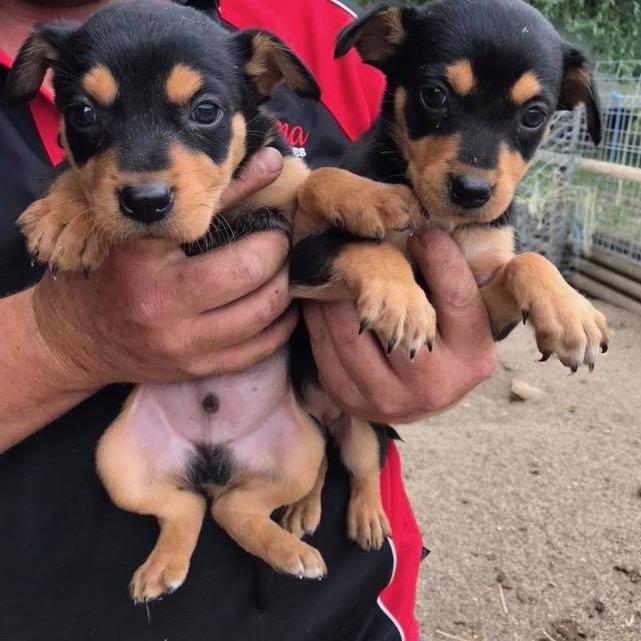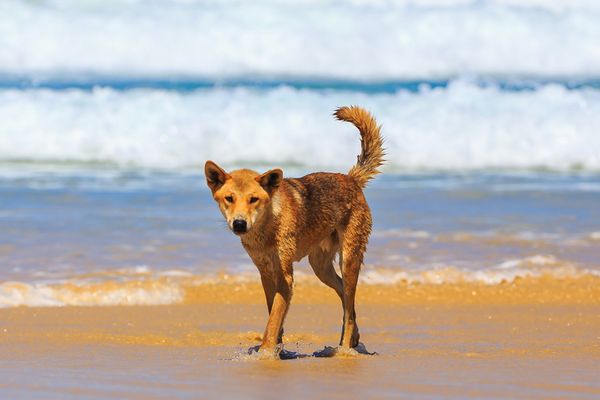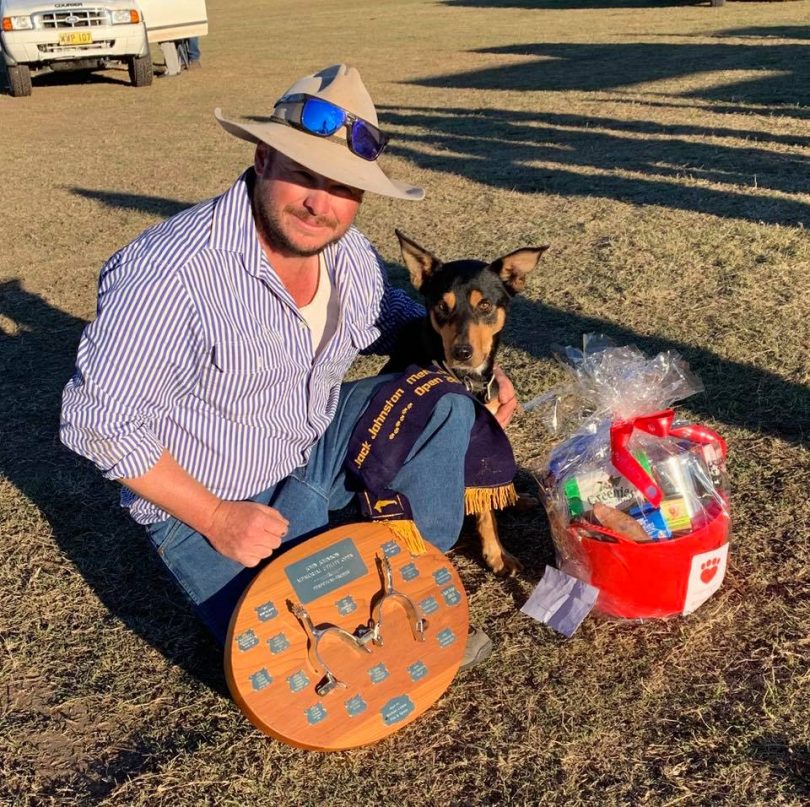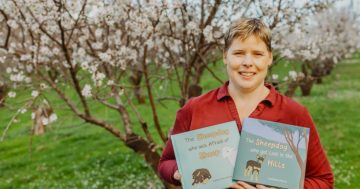
Future champions, these kelpie pups can expect hard work and top-level competitions with other working dogs. Photo: Supplied.
These kelpie pups are growing up in a drought and bushfire-ravaged industry which is becoming more fragile with each day ending without rainfall. From Koonama Working Kelpies Stud, the pups’ owner and trainer Nick Foster fears for the future of stockmen.
“If we don’t get rain soon there are going to be so many people in the livestock industry that are going to be struggling,” Nick says. “Not many people take an interest in what we do. I can understand why. It is ridiculous hours and minimal wages in most parts of the sector.”
Bringing a world of knowledge, skills and trained dogs to their work, stockmen barely make enough to live on, according to Nick, although he quickly adds he is an exception, and is well looked after.
Bushfires are giving the drought a more desperate edge, but Nick keeps a positive outlook. He built new yards for the Taralga Australia Day working dog trials and, even though the threat of bushfires caused the trial’s cancellation, he expects the event to bounce back next year bigger than ever. And he can guarantee these pups will have a win the first time they place a tentative paw inside a dusty pen of sheep to begin their working life.
“The biggest thing for a pup is always having a win,” he says. “We always start with something they are actually capable of doing.”
That’s how he trained Cracka, a champion he bred which won 19 open working sheepdog finals last year.
“Cracka is one of those dogs who just knows his job, and that’s him, off he goes, you never have any real problem. Quite often I have people come and watch him work and I’ll be on the phone, organising stuff here and Cracka will put 1500 ewes through a gate, down a laneway and whatever else by himself without any direction,” he says.

Many believe the kelpie is related to the dingo. Photo: Tourism and Events Queensland.
Kelpie’s origins can become contentious. Nick believes dingoes were crossed with collies to create the kelpie breed. Dingoes on Fraser Island are rarely interbred and hold special interest for Nick, who works as a livestock manager in Boorowa. On the island off the coast of Queensland recently, he watched intently as a dingo stalked a bird.
“I thought, God almighty there is so much kelpie in that one, it’s not funny. I would say there are 10 to 12 different strains of kelpie in Australia. Some are more dingo-related than others, some have more collie than others.”
His kelpies came from Capree Stud on the NSW Central Tablelands. They are known for their toughness.
“Mine have more of that mongrel side of a dingo in them, whereas you go to places in Queensland, there is a stud up there and they are more the stand-and-stalk-wait-things-out type,” he says. He concedes some people would not have the single-minded kelpie he breeds. They can be too forceful and independent.
“If a cow or ram takes them on they will grab them straight away, when they have done that the argument is over, and it is forward from there,” he says.
Nick is passionate about his dogs and his occupation as a stockman. On the pastoral company which has several properties in the Hilltops region, he says kelpies help manage big numbers of sheep and cattle.
“We run over 20,000 sheep here and there are three other stockmen here. No one could do their jobs without dogs. No one will ever work as hard as a dog I can guarantee that,” he says.
Nick finished in the Australian top 24 working dog trainers at West Wyalong last year. He doesn’t train or breed the mongrel streak out of his kelpies. He says a bit of mongrel helps get through the grinding, dusty and curse-inducing workload.
“Everything has to be done as quickly as possible, it is the job that I work in, there is too much to do here to stuff about,” he says. “When you are out mustering in the hills, you are not telling them what to do, but they may have spotted 20 sheep somewhere where you can’t see them – hiding under a tree or behind a log or whatever else – and they will go and get them,” he says.
It’s no wonder he’s sold his pups all over Australia, New Zealand and even the United Kingdom.
To find out more about these working dogs, visit Koonama Working Kelpies on Facebook.

Nick Foster with Cracka. Photo: Supplied.
Original Article published by John Thistleton on The RiotACT.








